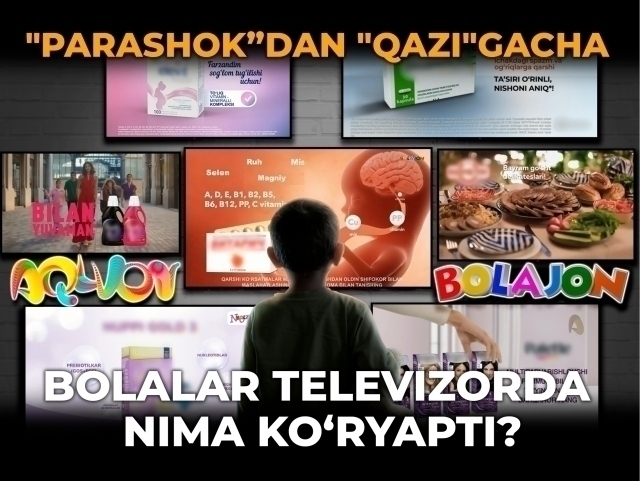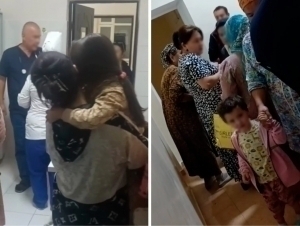Are children's TV channels targeting children — or their parents?
Review
−
12 December 2024 10284 6 minutes
"If you're watching commercials and enjoying them, do they put a movie in between? We need commercials, why do we need movies?" These words, spoken by humorist Hajiboy Tojiboyev several years ago, remain relevant today. Uzbek TV channels still broadcast "inconspicuous" commercials that make people uncomfortable when watching family TV. While it's true that advertising is a source of income for TV channels, how appropriate is it to air such ads on children's TV channels? QALAMPIR.UZ investigated the situation.
Currently, Uzbekistan has two TV channels dedicated to children: "Bolajon" and "Aqlvoy." The "Bolajon" TV channel began operations on June 1, 2013, and is intended for children aged 3-10. It aims to shape their minds, broaden their worldview, and enrich their knowledge and spirituality. The "Aqlvoy" TV channel started broadcasting on March 22, 2021, with the slogan "This is your time," also targeting children aged 3-10.
"Bolajon" or "Onajon" (Baby or Mummy)?
Many mothers rely on these state children's TV channels to shield their kids from inappropriate internet content. While the programs on these channels meet quality standards, the advertisements aired on them raise questions. Oddly enough, the products or services advertised are often more relevant to mothers than children. This marketing tactic has led to a surge in ads for laundry detergents, gels, and other household products. While such ads might seem harmless, their constant repetition may not be suitable for a young audience.
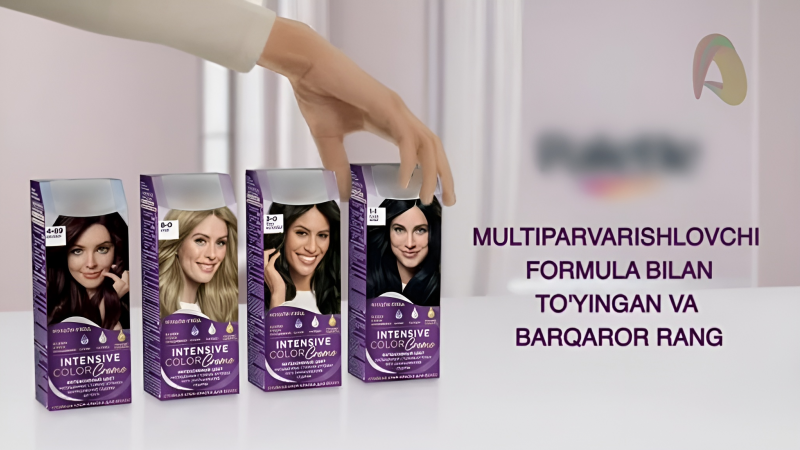
Teacher Shahnoza Umarova, who has 30 years of pedagogical experience, expressed concern, stating, "Children's TV channels should broadcast advertisements for products that are appropriate for the age of children."

Children who grow up watching these ads become familiar with which detergent to use for which type of fabric, but they also begin to learn about medications and illnesses. As a result, some children may mistakenly believe that "only sick people live in Uzbekistan," as TV advertisements frequently feature people being cured of illnesses. This creates the impression that the world is a pharmacy.
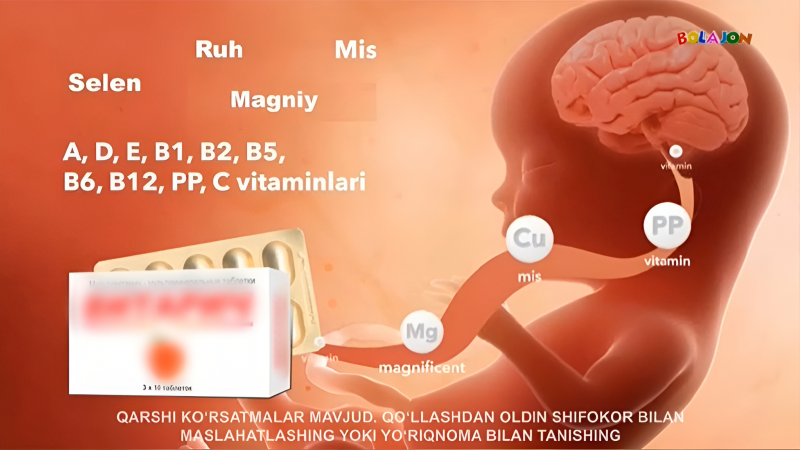
Viewers have also noted the prominence of ads for products like breast milk substitutes and pregnancy-related items on children's channels. Children may consume meat products like sausage, but advertising "kazi" (a traditional meat product) seems out of place on a children's channel. Lobar Rikhsiboyeva, the mother of a 3-year-old child, criticized the situation, saying, "Children are not interested in products like medicines or 'kazi.' My child enjoys watching commercials, but I don’t show them. Advertisements should aim to develop a child's mind. It’s become a time when it’s impossible to watch TV."

Another peculiar case is the airing of hair dye ads on the "Aqlvoy" channel. It’s hard to understand why a product targeted at women is being advertised on a children’s channel.
One mother, who closely monitors her child's TV viewing habits, noted, "The funniest thing is that among cartoons and shows, there are advertisements for hair dyes for women. I think it is time to regulate advertisements."
Another parent commented:
"My child watches 'Aqlvoy' and 'Bolajon.' I also pay attention to the advertisements they broadcast. Hair dye ads have nothing to do with children. I think it is time to regulate advertising on children's TV channels."
How Much Do TV Ads Cost?
Advertising is a major source of income for TV channels, and the costs of advertising on children's channels are not low. In 2023, the following rates applied for advertising on "Bolajon":
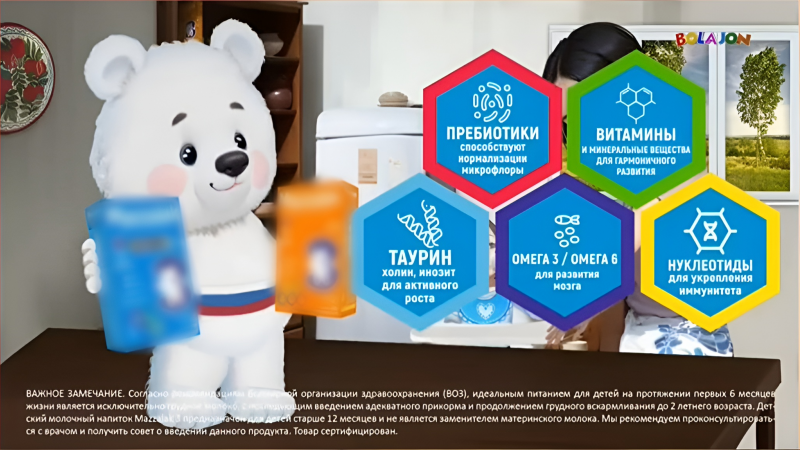
- A 10-second ad between 00:00 and 17:59 costs 650,000 soums.
- A 10-second ad between 18:00 and 23:59 costs 2,600,000 soums.
- A 10-second ad in telecontent announcements costs 150,000 soums from 00:00 to 17:59 and 400,000 soums from 18:00 to 23:59.
- The cost of advertising in the TV program announcements block ("poster") for a month from 00:00 to 17:59 is 120,000,000 soums.
A 1-minute ad during the off-prime time (07:00-17:59) costs 5,750,000 soums, while during prime time (18:00-23:59), it costs 10,000,000 soums.
Ad Overload
On October 23, 2024, "Bolajon’s" TV program "Multipanorama" aired from 11:10 to 12:00. Of those 50 minutes, 3 minutes were devoted to ads, including 2 ads for electronic shopping services, vitamins, and breast milk substitutes; 4 ads for 3 types of medicines; 1 ad for a sausage meat product; and 1 ad for a washing machine.
On October 30, 2024, the "Aqlvoy" TV channel’s program "Sehrli Tsotsana" was scheduled to start at 9:40 but started at 9:46 due to a 4-minute ad break. This break featured 11 advertisements, including 6 for medicines, 2 for washing powder, 1 for a sausage meat product, and 1 for hair dye. On the same day, "Bolajon’s" "Multipanorama" was supposed to start at 10:20 but was delayed until 10:25 due to 4 minutes of advertising, which included 13 ads for 5 types of medicines, 1 for an electronic shopping service, and 1 for a breast milk substitute product.
Does the Law Allow This?
The legal framework governing advertising in Uzbekistan is laid out in the Law on Advertising. The law, initially approved on December 25, 1998, was updated on June 7, 2022. Article 17, Chapter 4, states:
"It is prohibited to advertise goods that are prohibited for minors to purchase or consume on television channels, television programs, and radio broadcasts intended for minors."
This provision is being ignored, as medicines not intended for children are frequently advertised on children's channels.
Another relevant provision, Article 36, Chapter 7, stipulates that "advertising breast milk substitutes is prohibited." Despite this, breast milk substitutes are being openly advertised on children's channels. Article 47, Chapter 8, establishes:
"Violations of the requirements for advertising aimed at minors, advertising of medicines, biologically active and food additives, as well as children's food products, shall entail the imposition of a fine equal to thirty times the base calculation amount."
Additionally, Article 51 stipulates that "the Antimonopoly Committee of the Republic of Uzbekistan shall ensure the implementation of this law, its delivery to executors, and its essence and significance are explained to the population."
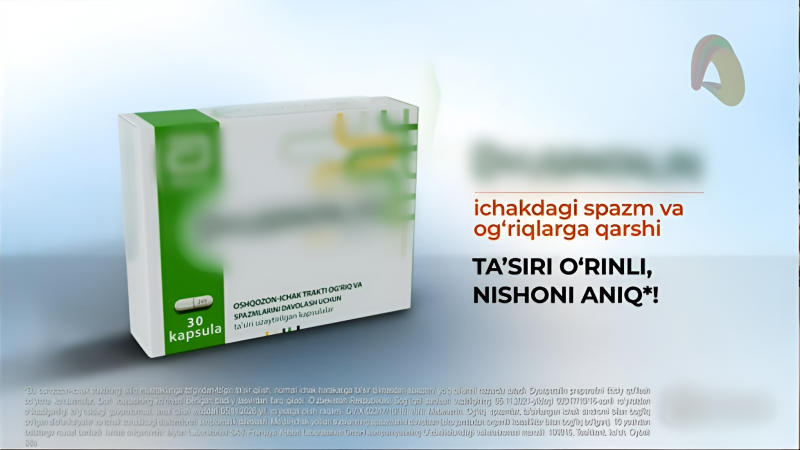
Whether channels like "Aqlvoy" and "Bolajon" have faced penalties for these violations remains unclear. However, advertisements for medicines, breast milk substitutes, and other products prohibited by law continue to air on these channels. This calls for urgent action to regulate the advertising market and enforce existing laws. The quality, appropriateness, and legality of advertisements must be scrutinized not only on children's channels but also on all TV channels.
We hope that relevant organizations will investigate the legality of the advertisements mentioned and take appropriate action to ensure compliance with the Law on Advertising.
Live
All